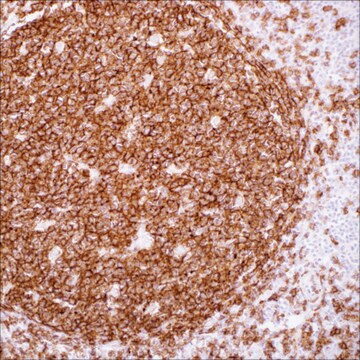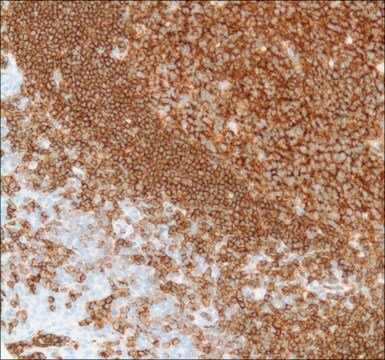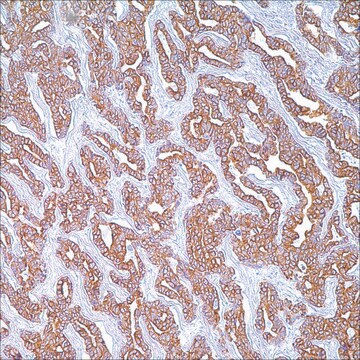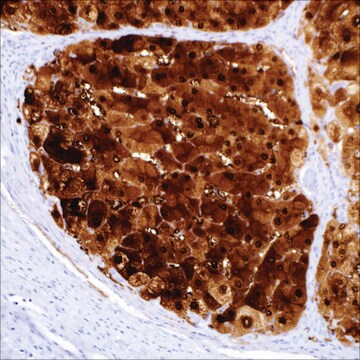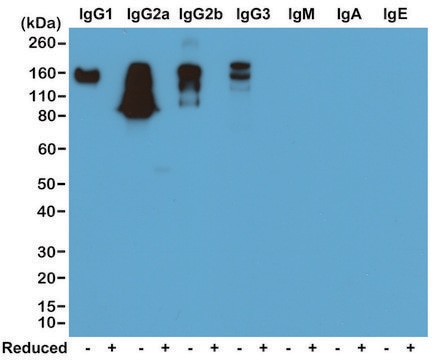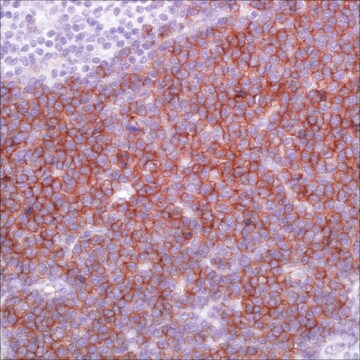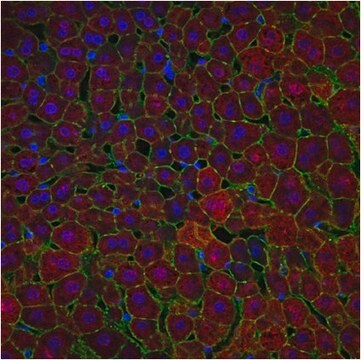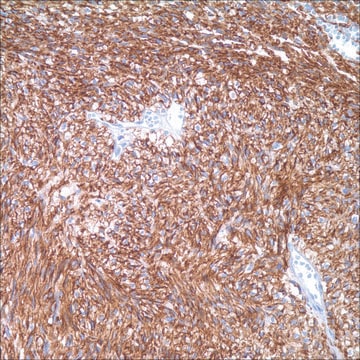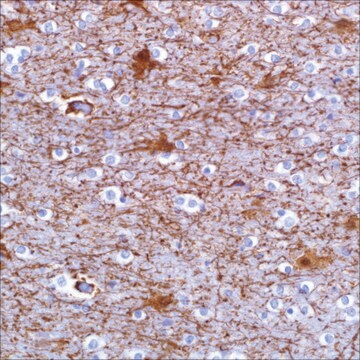119M-1
CD19 (MRQ-36) Mouse Monoclonal Antibody
About This Item
Productos recomendados
origen biológico
mouse
Nivel de calidad
100
500
conjugado
unconjugated
forma del anticuerpo
culture supernatant
tipo de anticuerpo
primary antibodies
clon
MRQ-36, monoclonal
descripción
For In Vitro Diagnostic Use in Select Regions (See Chart)
Formulario
buffered aqueous solution
reactividad de especies
human
envase
vial of 0.1 mL concentrate (119M-14)
vial of 0.5 mL concentrate (119M-15)
bottle of 1.0 mL predilute (119M-17)
vial of 1.0 mL concentrate (119M-16)
bottle of 7.0 mL predilute (119M-18)
fabricante / nombre comercial
Cell Marque™
técnicas
immunohistochemistry (formalin-fixed, paraffin-embedded sections): 1:25-1:100
isotipo
IgG1κ
control
tonsil
Condiciones de envío
wet ice
temp. de almacenamiento
2-8°C
visualización
membranous
Información sobre el gen
human ... CD19(930)
Descripción general
Calidad
 IVD |  IVD |  IVD |  RUO |
Ligadura / enlace
Forma física
Nota de preparación
Otras notas
Información legal
¿No encuentra el producto adecuado?
Pruebe nuestro Herramienta de selección de productos.
Elija entre una de las versiones más recientes:
Certificados de análisis (COA)
¿No ve la versión correcta?
Si necesita una versión concreta, puede buscar un certificado específico por el número de lote.
¿Ya tiene este producto?
Encuentre la documentación para los productos que ha comprado recientemente en la Biblioteca de documentos.
Nuestro equipo de científicos tiene experiencia en todas las áreas de investigación: Ciencias de la vida, Ciencia de los materiales, Síntesis química, Cromatografía, Analítica y muchas otras.
Póngase en contacto con el Servicio técnico